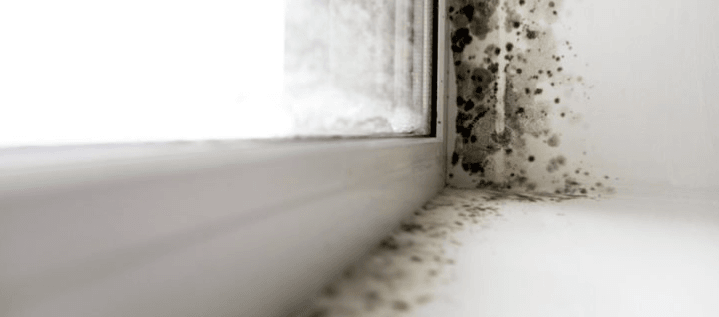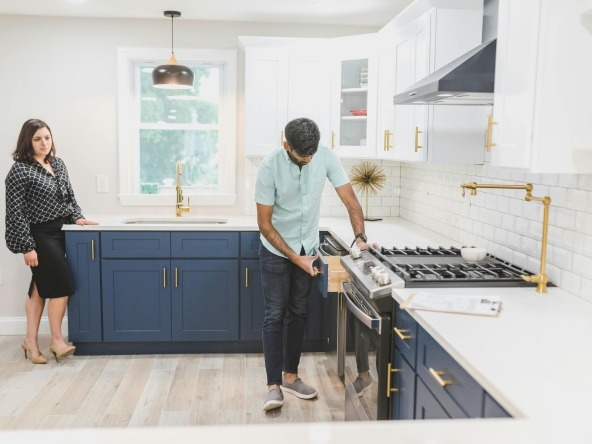Depending on where mould in an investment property can be an issue all year round. In this article we explain some general points to help avoid the build up of mound in your investment property.
What is mould?
Mould and mildew are a form of funghi. They thrive and grow with built up moisture. Overtime a property may get damp, dark and poorly ventilated. This often occurs in wet areas of a home including kitchens, bathrooms and laundries. Other areas can also be on walls, flooring (such as under carpets), behind furniture or on internal roofing areas.
Unfortunately mould can transmit from one area to another. Once it spreads it can start multiplying. It generally moves through contact of some sort but it can also spread air-borne making it difficult to keep on top of.
Why is mould problematic?
Mould in an investment property can cause many serious issues within your property. As mould dries it releases spores. The spores of bacteria, algae or fungi can cause terrible illnesses. This can be particularly worse for people who have existing health issues.
Mould can also cause nasty odours or smells. The odour is very unpleasant and gives out moist smell in the room. Some people compare it to the smell of wet socks, or rotten wood or paper. As the mould accumulates it starts to damage building materials and home contents. It can accumulate without being unnoticed. If unattended it can potentially create structural damages.
Where does mould come from?
Mould is everywhere. It can be found both indoors and outdoors. It manifests on many objects including food, clothing, carpets, timber and much more. It grows best in damp, poorly ventilated areas with limited or no sunlight, and reproduces by making spores.
Mould and mildew often manifests in investment properties. This occurs from the activity within the home. A tenant may cause it if they are not maintaining the property carefully, while it may be caused by property defects. Determining the difference between the two causes can be difficult.
How to identify mould before it becomes an issue?
Mould can be quickly identified by either the smell or by physically seeing it. The smell is very unpleasant so it can be quickly found if it is unseen. If you don’t have to much clutter within a property you will soon find it visually. It can appear in many shapes and colours including black, brown and green. The clusters often look very patchy. Black is the most common colour. If you don’t clean your shower regularly, you’ll soon see it in the corners and in the grout. As the shower is regularly wet, damp and warm i is the perfect breeding ground for mold and mildew.
If you see some usual activity appear on a surface you can test it for mould and mildew by putting some bleach on the area. If the colour changes you’ll soon identify that it is mould and mildew.
Who’s responsible for getting rid of the mould in an investment property?
This is a grey area as the basis behind the build up of mould and mildew can vary significantly.
The landlord would generally be responsible for the mould, if it arises from a lack of maintenance or repairs. Examples include:
- Leaking issues (such as a leak in the roof or walls)
- Overflowing of water not being cause be old or damaged gutters and pipes)
- Plumbing issues (including indoor and outdoor)
Keeping your property well maintained and tidy will help prevent the landlord from becoming responsible. If your property manager or tenant finds maintenance issues, its always prudent to rectify these promptly.
Tenants can also be responsible for mould in an investment property. This could happen intentionally or not, but a tenant should notify their property manager promptly to prevent their responsibly. Some examples include:
- Using the bathroom facilities such as the shower and not turning on the exhaust fan or opening a window to circulate the air.
- Not drying up wet surfaces. This is particularly ignored after a bath or shower.
- Cooking meals in the kitchen and ignoring the use of the rangehood.
- Operating a clothes drier in the laundry and not turning on the exhaust fan or opening a window to circulate the air a drier without ventilation.
- Drying clothes on a hoist and inside the property and not airing the room out afterwards.
- Not adequately cleaning a spillage and leaving it wet.
How to do I get rid of mould?
If mould in an investment property is identified early, it can be cleaned out easily. Simple surface mould and mildew in a shower or laundry sink may be fine with the use of gloves and an anti-bacterial spray, however should it be more complicated or bigger, cleaning it can impose an increased health risk. It would then be appropriate to employ a specialist to clean the mould and mildew out. Depending on the responsibly burden, that party would be the most likely person top pay for it to be rectified. The bigger the build up, the more expensive it would cost to remove. Therefore it would be best to monitor the property regularly. Having a good property manager will be a hand partner to check this on a landlord’s behalf. To learn more about a good property manager, click Great tips when selecting a Property Manager.
Checking for mould in an investment property should be part of your maintenance checklist. The older the property, the more chance this will be an issue. Take the time to communicate with your property manager and tenant and it will go a long way to avoid this issue which can be avoided.
Happy investing!!!
If you’d like to learn more about buying an investment property, please don’t hesitate to contact us. We would welcome the opportunity to help with your property purchase.
Our YouTube channel and Market Insights also provide a wealth of information to assist you with many areas relating to property.
While we have taken care to ensure the information above is true and correct at the time of publication, changes in circumstances and legislation after the displayed date may impact the accuracy of this article. If you want to learn more, please contact us. We welcome the opportunity to assist you.
Apr 2020













